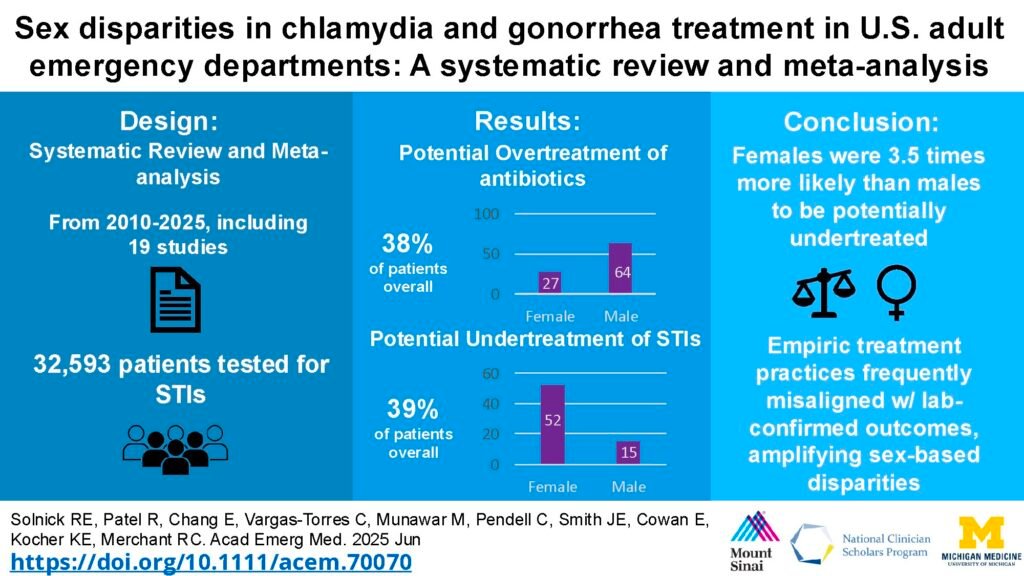Sexually transmitted infections (STIs) are a significant public health concern, affecting millions of Americans each year. In the emergency department, healthcare providers often face the dilemma of whether to administer antibiotics to patients suspected of having an STI before lab results are available. A recent systematic review published in Academic Emergency Medicine sheds light on the hidden problem of overtreating men and undertreating women for chlamydia and gonorrhea in emergency department settings.
According to the review, 38% of ED patients who tested negative for chlamydia or gonorrhea still received antibiotics. This unnecessary treatment can contribute to antibiotic resistance, side effects, and unnecessary medical costs. Additionally, the review found that women are more likely to be undertreated for STIs, with over half of positive cases in women lacking documented treatment, while men are more likely to be overtreated.
Chlamydia and gonorrhea are curable infections that can have serious consequences if left untreated, particularly for women. With STI clinics closing and limited primary care access, emergency departments have become a critical setting for STI diagnosis and treatment. However, the review highlights the need for a more balanced and evidence-based approach to STI care in the ED.
One solution proposed in the review is the use of rapid molecular tests that can provide real-time results for chlamydia and gonorrhea. This would allow healthcare providers to make more informed treatment decisions and avoid unnecessary antibiotic use. Shared decision-making with patients and ED callbacks for positive STI results are also recommended strategies to improve STI care in emergency departments.
To address disparities in STI treatment, the review suggests integrating clinical decision support into electronic health records to prompt reevaluation of treatment decisions and close the gender gap in care. By recognizing patterns, evaluating clinical data, and adjusting approaches based on evidence, emergency departments can provide more equitable and effective STI care.
In conclusion, the review emphasizes the importance of delivering evidence-based and equitable care for STIs in the emergency department. By implementing innovative diagnostic tools, engaging in shared decision-making with patients, and addressing biases in treatment approaches, healthcare providers can improve outcomes for patients with chlamydia and gonorrhea. It is crucial to prioritize fairness and evidence-based care in every shift in the emergency department to ensure the best possible outcomes for all patients.


